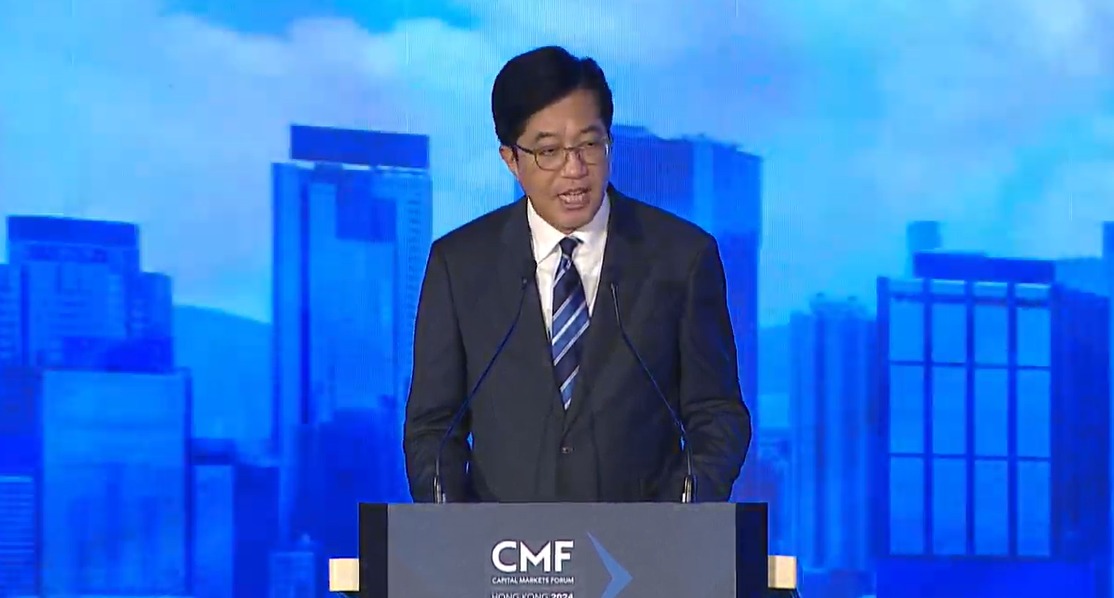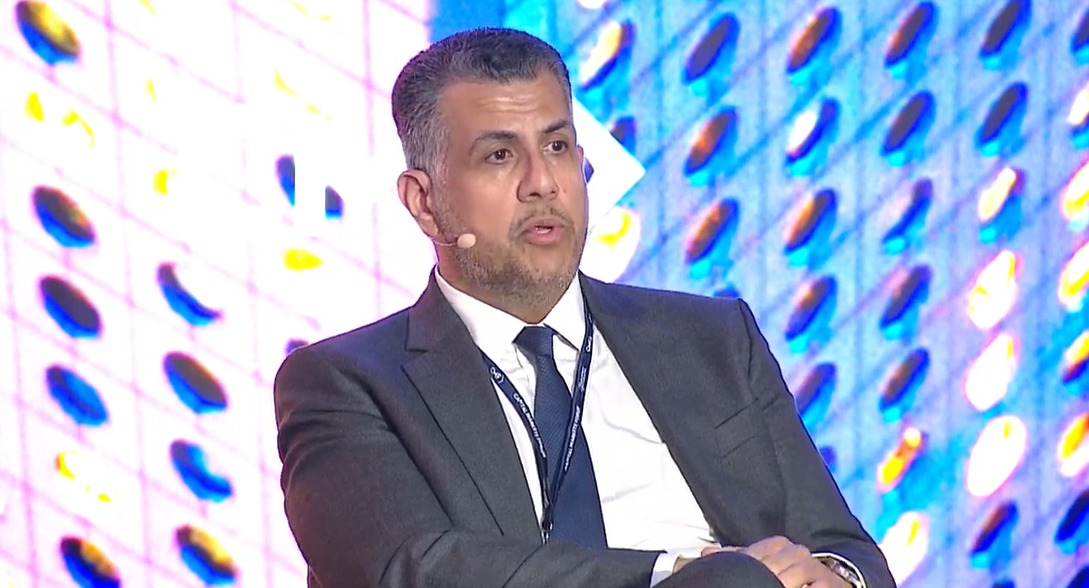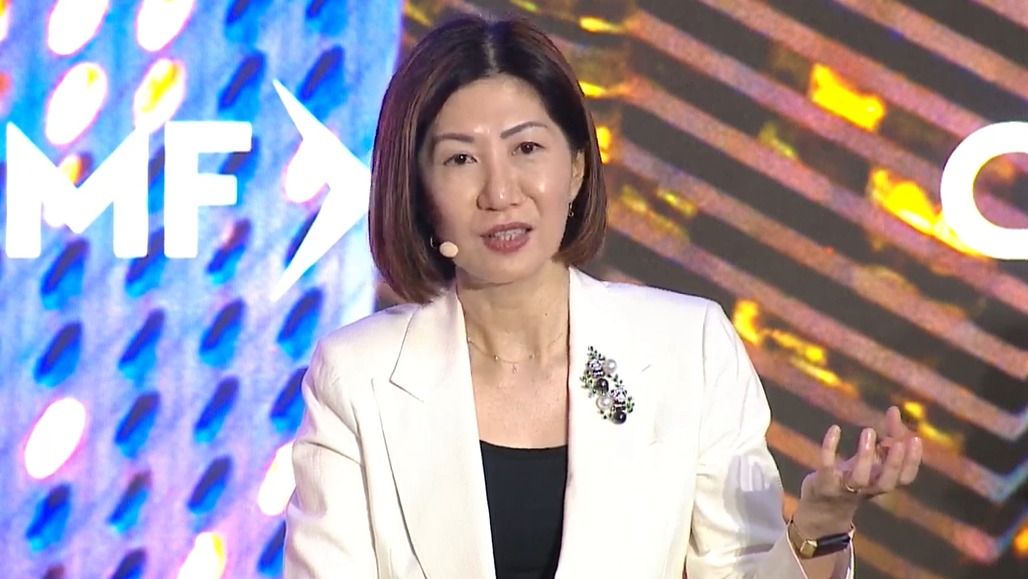RIYADH: Hong Kong is in the process of developing an exchange-traded fund in collaboration with Saudi Arabia, which will track the former’s local stock indices, said a senior official.
During his address at the Capital Market Forum in Hong Kong, Michael Wong – deputy financial secretary of the administrative region – revealed plans for establishing a trade base in Riyadh.
This move aims to bolster economic relations not only between Hong Kong and Saudi Arabia but also with mainland China.
Wong said: “We are working with several financial institutions on the listing of an ETF in the Middle East to track Hong Kong’s stock indices. The Hong Kong government is also considering establishing an economic and trade office in Riyadh.”

Michael Wong, deputy financial secretary of Hong Kong.
This development comes on the heels of Hong Kong’s November 2023 launch of an ETF that tracks the performance of the Saudi Arabia Index.
“Just a few weeks ago, the China Securities Regulatory Commission announced a series of measures to further expand mutual access, which will make it even easier for Saudi companies to access Chinese capital,” he added.
During his speech, Wong disclosed that Cathay Pacific Airways will commence flights from Hong Kong to Riyadh by the end of 2024, reducing flight time to six hours.
“Cathay Pacific, within a few months time, will relaunch direct passenger flights between Hong Kong and Riyadh. And I have been told that it will happen in the fourth quarter of this year,” noted the deputy financial secretary.
He added: “The friendship and partnership between Hong Kong and Saudi Arabia will go very far and will endure the test of time.”
Saudi-Hong Kong ties

Khalid Al-Hussan, CEO of Saudi Tadawul Group.
Speaking at the opening ceremony of the event, Khalid Al-Hussan, CEO of Saudi Tadawul Group, emphasized that the hosting of the Capital Market Forum in Hong Kong signifies a deepening connection between the two nations.
Al-Hussan further elaborated that the two-day forum, which commenced on May 9, has drawn together over 1,000 investors, listed companies, and financial pioneers. Their aim is to explore the critical challenges and opportunities that are shaping the contemporary market landscape.
“This forum is not just a meeting point, but a crucial bridge for investors from Hong Kong and mainland China to connect directly with Saudi issuers. By uniting the two dynamic economies of Saudi Arabia and Hong Kong, we are strengthening financial bonds and synergies between two of the most promising and rapidly evolving markets,” said Al-Hussan.
He added: “The convergence of Hong Kong’s technological evolution and Saudi Arabia’s economic diversification has set the stage for a fresh era of knowledge sharing and collaboration that extends far beyond capital markets.”
The CEO of Tadawul Group added that Saudi Arabia’s stock exchange has undergone significant transformations since the launch of Vision 2030.
He further emphasized the Kingdom’s aspiration for an open market that is fully integrated with the rest of the world.
“Before Vision 2030, the Saudi capital market was a closed market focused on local issuers as well as serving local investors. Vision 2030 came to the scene with a wider range of goals. Vision 2030 clearly has set goals for the Saudi capital market. We want an open and attractive capital market that is integrated with the rest of the world,” said Al-Hussan.
He further noted that the average daily trading volume in Saudi Arabia’s stock exchange has doubled over the last two years.
“The average daily trading this year has almost doubled compared to the average of the last two years, reaching in Q1 around SR9.5 billion which is roughly around $2.3 billion on a daily basis which is a significant liquidity,” added Al-Hussan.
Abdulaziz bin Hassan, a board member of Saudi Arabia’s Capital Market Authority, highlighted that the Kingdom is undergoing a significant transformation, with its market ranked among the top 10 globally in terms of market capitalization.
He also noted a surge in initial public offerings within the Kingdom’s market, accompanied by rapid expansion in the asset management sector.
“Currently, we have an average of around 40 IPOs every year, compared to one or two in the whole year in the past, and that shows the attractiveness of the market,” said Hassan.
He added, “Our asset management has grown significantly from $100 billion to $130 billion. The number of participants in asset management used to be 250,000, and right now we have more than a million. This growth happened within five years.”
For her part, Bonnie Y Chan, CEO of Hong Kong Exchanges and Clearing Ltd, remarked that Saudi Arabia’s economic diversification journey is advancing steadily, with the Kingdom’s capital market presenting significant potential for investors.
She further emphasized the pivotal role of capital markets in bolstering and expanding global connectivity.
“China and Saudi Arabia are both undergoing fantastic economic transformations that bring toward very interesting opportunities. On the Saudi side, the key thing is the diversification. Instead of focusing on the oil industry, we are seeing fantastic developments in the Kingdom,” noted Chan.

Bonnie Y Chan, CEO of Hong Kong Exchanges and Clearing Ltd.
Aim for $3.2 trillion capital formation
During a panel discussion, Saleh Al-Khabti, Saudi Arabia’s deputy minister of investment transactions, revealed that the Kingdom has set a target for fixed capital formation of more than $3 trillion.
“We have an ambitious plan for Vision 2030. We are at the halfway mark. We are very proud of what we have achieved so far. We have a target for fixed capital formation of $3.2 trillion,” said Al-Khabti.
The deputy minister added that Saudi Arabia possesses all the elements necessary to capture investor appetite.
He further observed that inflation in Saudi Arabia remains healthy, and the Kingdom’s banking sector continues to maintain a strong footing with robust credit demand.
“We have seen more than two years of non-oil sector growth, which is above its long-term average, with non-oil growth reaching 4.4 percent. We had a gross fixed capital formation last year of about $300 billion, and that’s a rise of 70 percent in five years, and equivalent to 28 percent of our GDP,” said Al-Khabti.
He added: “We have a healthy market and strong economy. Unemployment has fallen from 12 percent to 7.7 percent, while female labor force participation has reached the high twenties, and that’s well ahead of our 2030 targets. So, invest in Saudi and you are welcome.”
The deputy minister also welcomed Chinese participation in various sectors including automobile, mining, technology and tourism.
“We welcome more Chinese participation in the automobile sector, EV sector, and its value chain. We are also aiming high on the tourism front. We had a target of 100 million visitors by 2030. The bad news is we reached it last year. So, our colleagues in the tourism sector were given a new stretched target of 150 million visitors by 2030,” added Al-Khabti.




















